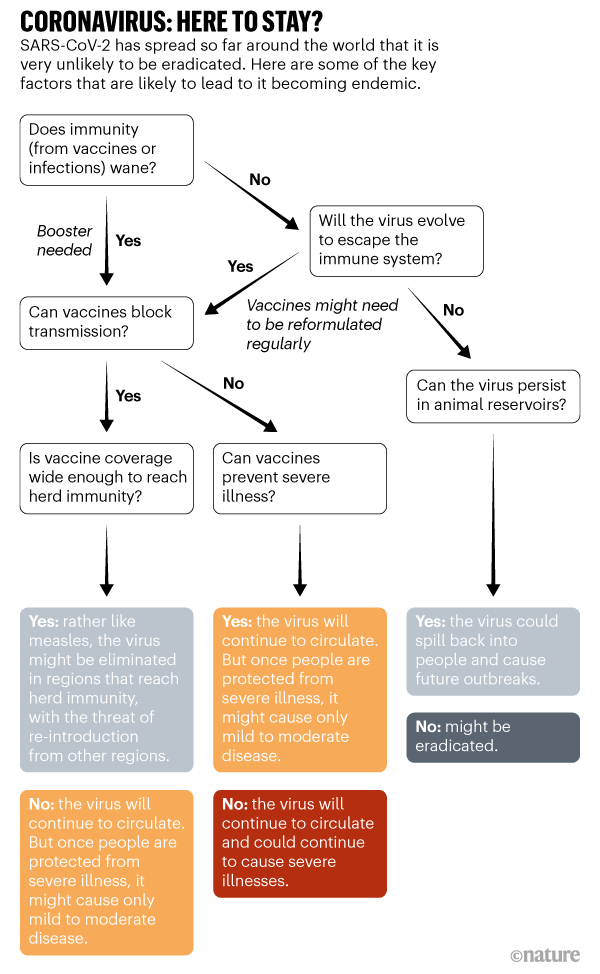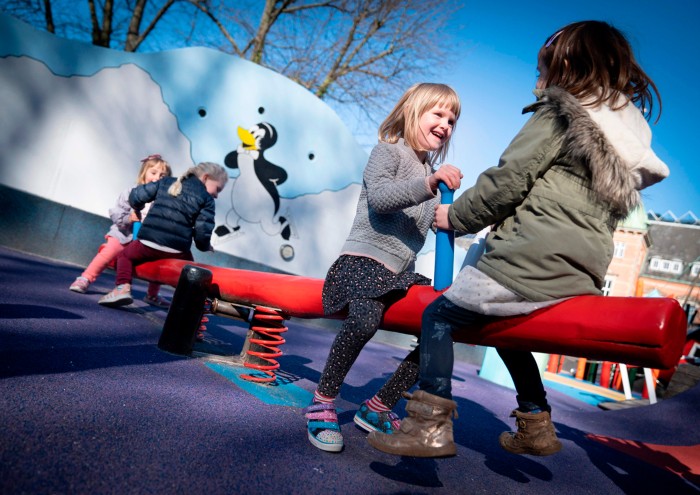Our Future With COVID
"It will be part of our lives. But the goal will be to make it a less intrusive part of our lives. No more lockdowns. We will think about it the way we think about other infectious diseases.""It is possible that we'll get it to the level of the flu. But that's not necessarily a good thing. Flu is a killer.""[When will it happen?] We won't know until we're there. Locally, it will probably be sometime next year. The big caveat is that there are no new variants and that vaccines behave in predictable ways.""The unvaccinated are not random groups of people. They are geographically clustered and socially linked. That is why we will see explosions of disease.""It's possible that it's a three-and-done vaccine."Dr.Raywat Deonandan, epidemiologist, global health researcher, University of Ottawa"We're anticipating that we will have COVID seasons for the next few years as we build up immunity. There will be no ticker tape parade no sign that says, 'We're endemic!'""I'm really sorry to say that vitamin D and a healthy diet is not going to be enough if you are 40 and older. For those who have not been vaccinated or have natural immunity, the first infection has a risk of being a doozy.""We're not going to eradicate COVID. We want to eliminate it."Dr.Doug Manuel, senior scientist, clinical epidemiology program, Ottawa Hospital Research Institute

Endemic? Translated, with us, always, backgrounded. We cannot reason with the virus that it's had its pandemic-day, time to recede into history. We've become familiar over the years with seasonal flu, and in time COVID will join the pantheon of diseases whose presence has proven to be an unchallenged presence that medical science has been incapable of burying, once and for all. And while there remain some dread diseases -- for example poliomyelitis -- eliminated in some countries, they may be prevalent or appear from time to time in others.
Public health officials recognize that vulnerable racialized communities are less likely to be vaccinated and those groups will remain under-vaccinated, suspicious of governments, its agencies, and vaccines in general. A report came out of Health Canada in the spring noting that ethno-culturally diverse neighbourhoods held disproportionately higher rates of COVID-19 infection rates, along with COVID-related deaths, in comparison with less diverse neighbourhoods -- and with hospitalization rates four times higher, death rates twice as high.
Portugal is a case study of a sizable population with but 80 positive cases reported daily, in comparison to 400 or 500 in Ontario with a population a third larger than that of Portugal's. The Wall Street Journal featured an article recently with the headllne: "Endemic COVID-19 has arrived in Portugal.This is what it looks like"; a soccer stadium full of people, another photo with people crammed on public transit. Devastated by COVID-19 earlier in the year, Portugal now boasts the highest vaccination rate in Europe, yet still maintains vaccine passports for sporting events and dining in restaurants.

Israel is another country under observation by international medical groups -- with its infection surge in September, irrespective of ambitious vaccination goals achieved. The government now recommends a third, 'booster' shot for anyone over age 12. Researchers in Israel reported older people receiving a third dose to be much less likely to test positive or to develop severe COVID-19 than those with the conventional two doses. The booster shot for the aged boosted them to a 92 percent immunity against contracting COVID.
And then, there are those who argue convincingly that they are naturally immune to the virus, they exercise, eat a healthy diet and take vitamins. Typically people aged between 40 and 60 are less likely to accept inoculation. Natural immunity however though real is difficult to rely on since science has no idea how robust natural immunity to COVID may be -- with one study suggesting 39 percent of people who were infected never produce antibodies. Natural immunity, according to another study, wanes faster than acquired immunity (antibodies produced after a bout of COVID infection).
The best scenario is a melding of natural immunity alongside full vaccination. Dr. Deonandan predicts the addition of COVID vaccinations to a list of mandatory vaccines for children attending school by next September becoming routine. He foresees a future where people will skip shaking hands, hugging or attending special events in avoidance of contracting the COVID virus. That people will practise isolation when ill, and the public becoming more likely to wear a mask in certain interiors.
Neither of these health professionals anticipates that an annual booster shot will become routine. They visualize a booster being recommended every few years. Perhaps not at all.
 |
| Children in Copenhagen play during the SARS-CoV-2 pandemic. Endemic viruses are often first encountered in childhood. Credit: Liselotte Sabroe/Ritzau Scanpix/AFP/Getty |
Labels: Booster, COVID-19, Post-Pandemic, Routine Mandatory Childhood Vaccinations

0 Comments:
Post a Comment
<< Home